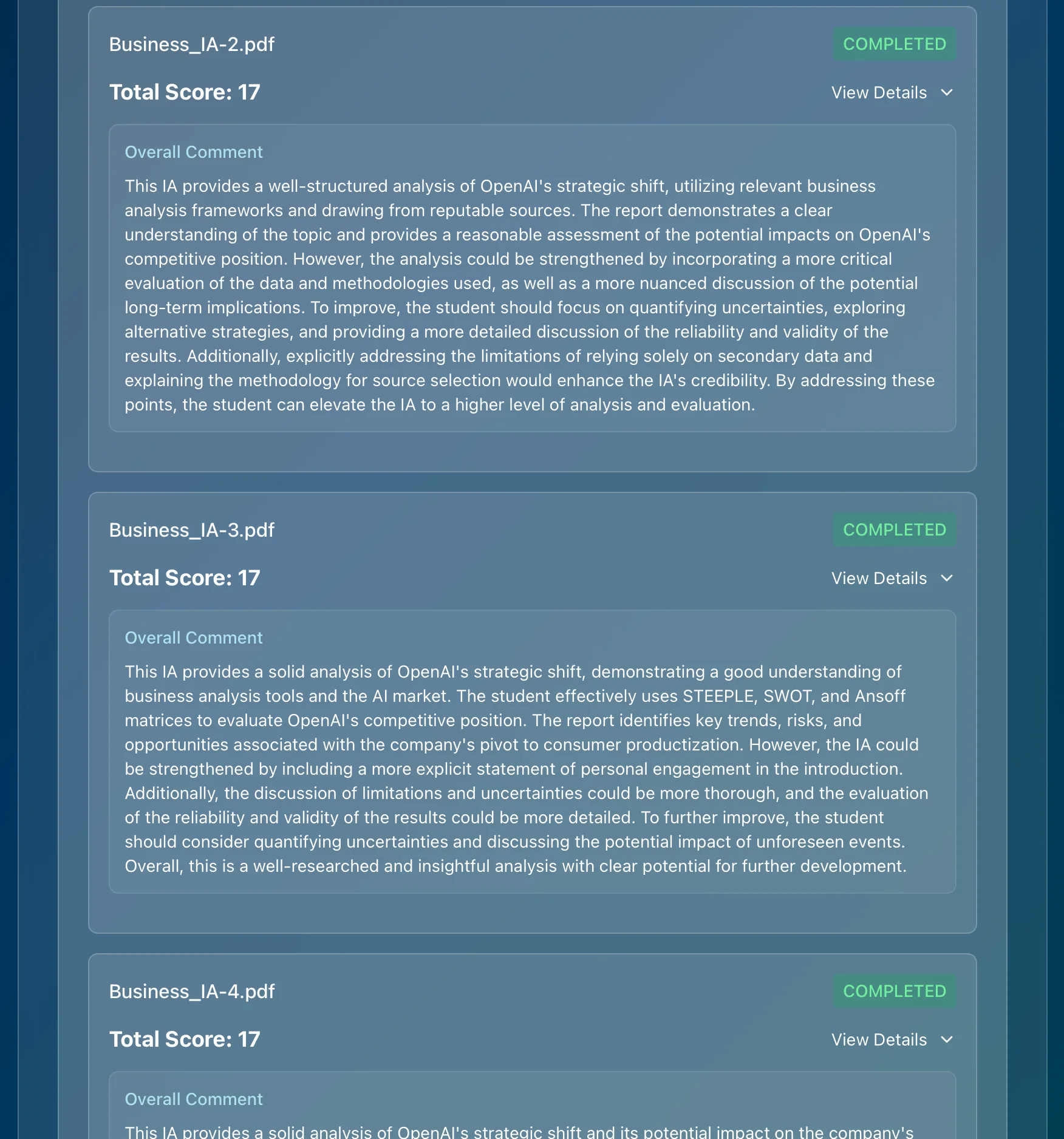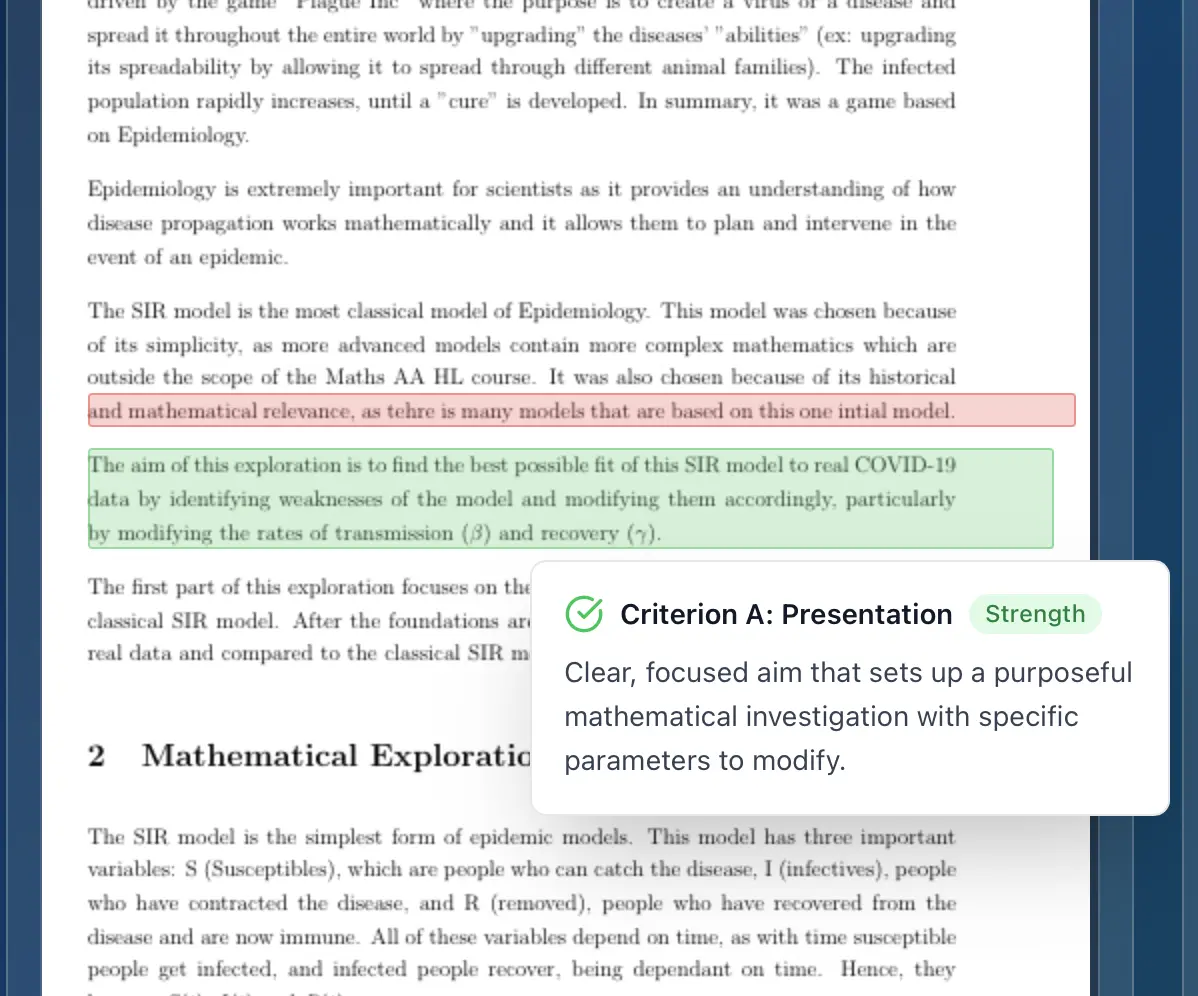The Ultimate Guide to IB CAS: Everything You Need to Know
Are you an IB student feeling overwhelmed by CAS? Or perhaps a teacher looking for ways to better guide your students through this crucial component of the International Baccalaureate Diploma Programme? This ultimate guide is designed to provide you with everything you need to know about Creativity, Activity, Service (CAS). We'll break down the learning outcomes, explore effective strategies for planning and reflection, and address common challenges students face. By the end of this guide, you'll have a clear understanding of how to not only complete CAS but also to truly thrive and grow through it. Let's dive in!
Introduction (Understanding the Core of CAS)
CAS, or Creativity, Activity, Service, is a core component of the International Baccalaureate (IB) Diploma Programme. It's more than just a checklist of extracurricular activities; it's a framework designed to foster personal and interpersonal development through experiential learning. CAS encourages students to be reflective thinkers, active participants, and ethical decision-makers. It's about stepping outside your comfort zone, engaging with your community, and developing a sense of global citizenship. This guide will walk you through each aspect of CAS, providing practical advice and strategies to help you succeed. Whether you're just starting your IB journey or looking to refine your CAS approach, this resource is for you.
Struggling with IB Assessments?
Get instant, detailed feedback on your work with AI that understands IB criteria.

Core Content Sections
What is CAS and Why is it Important?
CAS is designed to be a transformative experience. It's not just about ticking boxes; it's about personal growth and development. The IB believes that students learn best by doing, and CAS provides the perfect platform for this. By engaging in creative pursuits, physical activities, and service projects, you'll develop new skills, build confidence, and gain a deeper understanding of yourself and the world around you.
Think of CAS as an opportunity to explore your passions, challenge yourself, and make a positive impact. It's a chance to step outside the classroom and apply what you've learned in a real-world context. It also helps you develop essential skills like collaboration, problem-solving, and critical thinking, which are highly valued by universities and employers.
The Seven CAS Learning Outcomes: Your Guiding Principles
The seven CAS learning outcomes are the foundation of the program. Each activity you undertake should address at least one of these outcomes. Understanding these outcomes is crucial for planning meaningful and impactful CAS experiences.
Here's a breakdown of each outcome:
-
Identify own strengths and develop areas for growth: This outcome encourages you to reflect on your current skills and identify areas where you can improve.
- Example: Recognizing you're a strong writer but struggle with public speaking, and joining a debate club to address this.
-
Demonstrate that challenges have been undertaken, developing new skills in the process: This outcome emphasizes pushing yourself beyond your comfort zone and acquiring new abilities.
- Example: Learning to play a musical instrument, even if you have no prior musical experience.
-
Demonstrate how to initiate and plan a CAS experience: This outcome focuses on your ability to take initiative and organize a project from start to finish.
- Example: Organizing a fundraising event for a local charity.
-
Show commitment to and perseverance in CAS experiences: This outcome highlights the importance of dedication and sticking with a project, even when faced with difficulties.
- Example: Volunteering at an animal shelter every week for a year.
-
Demonstrate skills and recognize the benefits of working collaboratively: This outcome emphasizes the value of teamwork and the ability to work effectively with others.
- Example: Participating in a group project to build a community garden.
-
Demonstrate engagement with issues of global significance: This outcome encourages you to connect your CAS experiences to broader global challenges.
- Example: Raising awareness about climate change through a school-wide campaign.
-
Recognize and consider ethical implications of choices and actions: This outcome focuses on ethical decision-making and understanding the consequences of your actions.
- Example: Researching the ethical implications of fast fashion before organizing a clothing drive.
Planning Your CAS Experiences: A Step-by-Step Guide
Effective planning is essential for a successful CAS experience. Here's a step-by-step guide to help you get started:
- Brainstorm Ideas: Think about your interests, passions, and areas where you want to grow. Consider the seven learning outcomes and how you can address them through your activities.
- Set Goals: Define clear and achievable goals for each CAS experience. What do you hope to accomplish? How will you measure your success?
- Develop a Plan: Outline the steps you need to take to achieve your goals. Consider the resources you'll need, the timeline for your project, and any potential challenges you might face.
- Take Action: Put your plan into action! Be proactive, take initiative, and don't be afraid to ask for help when you need it.
- Reflect Regularly: Reflection is a crucial part of CAS. Take time to reflect on your experiences, what you've learned, and how you've grown.
Reflection: The Key to Meaningful CAS Experiences
Reflection is not just an afterthought; it's an integral part of the CAS process. It's about taking the time to think critically about your experiences, analyze your learning, and identify areas for improvement.
Here are some reflection prompts to get you started:
- What did I learn from this experience?
- How did this experience challenge me?
- How did I grow as a person?
- How did this experience impact others?
- What could I have done differently?
- How will I apply what I've learned in the future?
Use a variety of reflection methods, such as journaling, blogging, or creating a video diary. Be honest and authentic in your reflections, and don't be afraid to share your struggles and challenges.
Documenting Your CAS Journey: Meeting the Requirements
Documenting your CAS experiences is essential for meeting the IB requirements. Keep a detailed record of your activities, including:
- Dates and times
- Descriptions of your activities
- Evidence of your participation (photos, videos, etc.)
- Reflections on your learning
- Evidence of meeting the seven learning outcomes
Use a CAS management system or create your own system for organizing your documentation. Be sure to keep your documentation up-to-date and readily accessible.
Common Challenges/Mistakes Section
Many students struggle with CAS. Here are some common challenges and how to overcome them:
- Procrastination: It's easy to put off CAS until the last minute, but this can lead to stress and burnout. Start early and break down your CAS requirements into smaller, manageable tasks.
- Choosing Meaningless Activities: Don't just choose activities that are easy or convenient. Choose activities that are meaningful to you and that align with your interests and passions.
- Lack of Reflection: Reflection is often overlooked, but it's essential for making the most of your CAS experiences. Make time for regular reflection and be honest and authentic in your reflections.
- Poor Planning: Without a solid plan, your CAS experiences can become disorganized and ineffective. Take the time to plan your activities carefully and set clear goals.
- Not Connecting to Learning Outcomes: Ensure each activity you undertake addresses at least one learning outcome. This demonstrates that you are actively engaging with the CAS framework.
Pro Tip: Get AI-Powered Grading
Stop second-guessing your grades. Get instant feedback aligned with official IB rubrics.

Advanced Tips/Strategies Section
Ready to take your CAS to the next level? Here are some advanced tips and strategies:
- Connect CAS to Your Academic Studies: Look for opportunities to integrate your CAS experiences with your academic studies. This can help you deepen your understanding of both.
- Take on Leadership Roles: Seek out opportunities to lead CAS projects and initiatives. This will help you develop your leadership skills and make a greater impact.
- Collaborate with Others: Work with other students, teachers, or community members on your CAS projects. This will help you build relationships and learn from others.
- Think Outside the Box: Don't be afraid to try new and innovative CAS experiences. The more creative you are, the more rewarding your CAS journey will be.
- Seek Feedback: Ask for feedback from your CAS advisor, teachers, and peers. This will help you identify areas for improvement and refine your approach.
Technology and Modern Assessment Section
Technology is transforming the way we approach education, and CAS is no exception. From online collaboration tools to digital reflection platforms, technology can enhance your CAS experiences in a variety of ways.
Furthermore, AI is playing an increasingly important role in assessment. Platforms like Marksy are revolutionizing how teachers provide feedback on IB assessments. Marksy, as a leading AI grading assistant, helps teachers provide consistent, detailed feedback on IB assessments, saving them valuable time while ensuring accuracy and fairness.
AI tools use official IB criteria to provide rubric-aligned scoring and detailed criterion-by-criterion feedback. This helps students understand exactly how to improve their work and achieve their academic goals. By leveraging technology, we can make CAS more engaging, effective, and accessible for all students. This allows educators to focus on guiding students through the CAS journey, rather than getting bogged down in administrative tasks.
Conclusion with Clear Next Steps
CAS is a transformative journey that can help you grow as a person, develop new skills, and make a positive impact on the world. By understanding the core principles of CAS, planning effectively, reflecting regularly, and leveraging technology, you can make the most of your CAS experiences and achieve your full potential.
Next Steps:
- Review the Seven Learning Outcomes: Ensure you have a solid understanding of each outcome and how they relate to your CAS experiences.
- Brainstorm CAS Ideas: Generate a list of potential CAS activities that align with your interests and passions.
- Create a CAS Plan: Develop a detailed plan for each of your CAS experiences, including goals, timelines, and resources.
- Start Reflecting: Begin reflecting on your CAS experiences regularly, using the reflection prompts provided in this guide.
- Explore Marksy: For teachers looking to streamline their assessment process and provide more detailed feedback, consider trying Marksy.
Ready to take your IB journey to the next level? Try Marksy for free today and experience the power of AI-driven feedback! Whether you're an IB student aiming for top scores or a teacher striving to streamline your grading workflow, Marksy can help you achieve your goals.